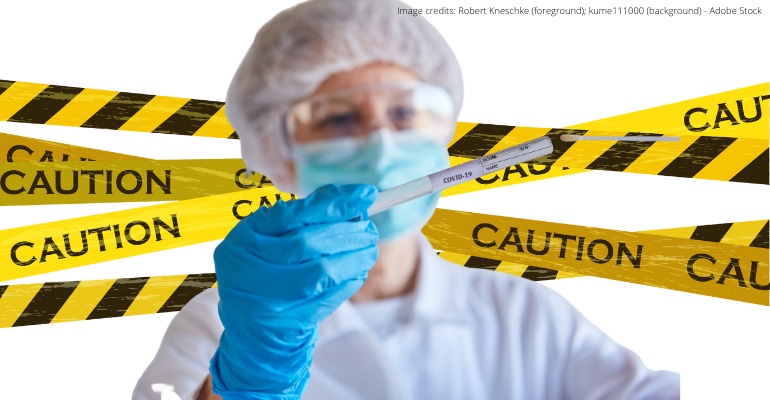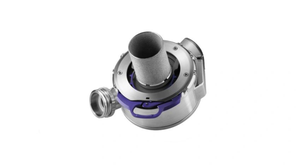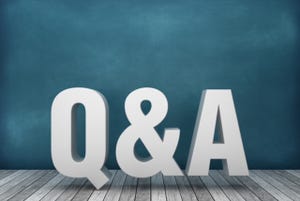FDA has authorized over 300 COVID-19 tests and collection kits, but these tests are not all created equal. Here are the tests that have been flagged for potential false results.
January 6, 2021

Editor's Note: This story mentions a COVID-19 test developed by San Dimas, CA-based Curative Inc., not to be confused with Santa Clara, CA-based Curative Medical Inc., a manufacturer that specializes in cardiopulmonary devices.
As of Tuesday, 310 COVID-19 tests and sample collection devices are authorized by FDA under emergency use authorizations. These include 235 molecular tests and sample collection devices, 64 antibody tests, and 11 antigen tests. There are 32 molecular authorizations that can be used with home-collected samples. There is one molecular prescription at-home test, one antigen prescription at-home test, and one over-the-counter at-home antigen test.
But as we have learned during the pandemic, not all COVID-19 tests are created equal. Over 200 COVID-19 tests are on FDA's removal lists of tests that should no longer be used and/or distributed for COVID-19. Other tests remain on the market but have been flagged by FDA for potential inaccurate results.
Most recently, FDA alerted patients and healthcare providers Monday of the risk of false negative results with the Curative SARS-Cov-2 test. The test is made by San Dimas, CA-based Curative Inc., a startup that reportedly processes about 150,000 saliva samples daily and has a $42 million Department of Defense contract to supply its COVID-19 test kits to military treatment facilities.
False negative COVID-19 test results put patients at risk of delayed treatment, lack of symptom monitoring, and it increases the risk of an infected patient unknowingly spreading the virus to others.
To reduce the risk of false negative results, FDA urged healthcare providers to perform the test in accordance with its authorization and as described in the authorized labeling. When the test is not performed in accordance with its authorization or as described in the authorized labeling, there is a greater risk that the results of the test may not be accurate, the agency said.
FDA recommends healthcare providers consider retesting patients using a different test if they suspect an inaccurate result was given recently by the Curative test. If testing was performed more than two weeks ago, and there is no reason to suspect the patient is currently infected by the virus, it is not necessary to retest. Patients are encouraged to talk to their healthcare provider if they think they were tested with the Curative test. FDA noted that the test name is displayed on this test’s authorized fact sheets, which are supposed to be provided with test result reports.
The Curative SARS-Cov-2 assay is a real-time RT-PCR test used to detect SARS-CoV-2, the virus that causes COVID-19. This test is authorized for prescription-only use. The test is performed by collecting a throat swab, nasopharyngeal swab, nasal swab, or oral fluid specimen. The specimen is then processed by KorvaLabs, a CLIA-certified laboratory that Curative acquired last May, and results are returned to the patient. Consistent with the test's authorization summary, negative results for SARS-CoV-2 RNA from oral fluid specimens should be confirmed by testing of another specimen type authorized for use with this test if clinically indicated, FDA noted.
Like many diagnostics companies providing COVID-19 tests, Curative has grown remarkably fast and didn't even exist a year ago, as the LA Business Journal noted in a report published Monday. According to that report, Curative processes about 150,000 saliva samples daily, and has about 2,600 employees and three laboratories. The company is also helping to deliver and administer Moderna's COVID-19 vaccine to nursing homes, the newspaper reported.
Curative's test is not the only one FDA has flagged for potential inaccurate results. In September the agency issued a broader warning about the potential for false positive results associated with all antigen tests used for rapid detection of the virus. Antigen tests are an important tool in the overall response against COVID-19 and benefit public health because they can provide results in minutes, FDA said, but they are usually not as sensitive as molecular tests. Due to the potential for decreased sensitivity compared to molecular assays, negative results from an antigen test may need to be confirmed with a molecular test prior to making treatment decisions.
As MD+DI reported in August, FDA has also warned of a risk of inaccurate results with Thermo Fisher Scientific's TaqPath COVID-19 combo kit based on two issues related to the test kit and the associated Applied Biosystems COVID-19 Interpretive Software. That test is a molecular assay for the detection of COVID-19 from respiratory specimens. The first issue has to do with inadequate vortexing and centrifugation of RT-PCR reaction plates, and Thermo Fisher has since updated its instructions to reduce that risk. The second issue involved the assay Internal Positive Control and required laboratory staff to upgrade their software to reduce the risk of invalid, potential false negatives, or inconclusive tests.
FDA also alerted clinical laboratory staff and healthcare providers in July of an increased risk of false positive results with BD SARS-CoV-2 reagents for the BD Max System test. That test is only authorized for use in CLIA-certified laboratories, and the agency said it was working with the manufacturer, Becton, Dickinson and Company, to resolve the issue.
About the Author(s)
You May Also Like




